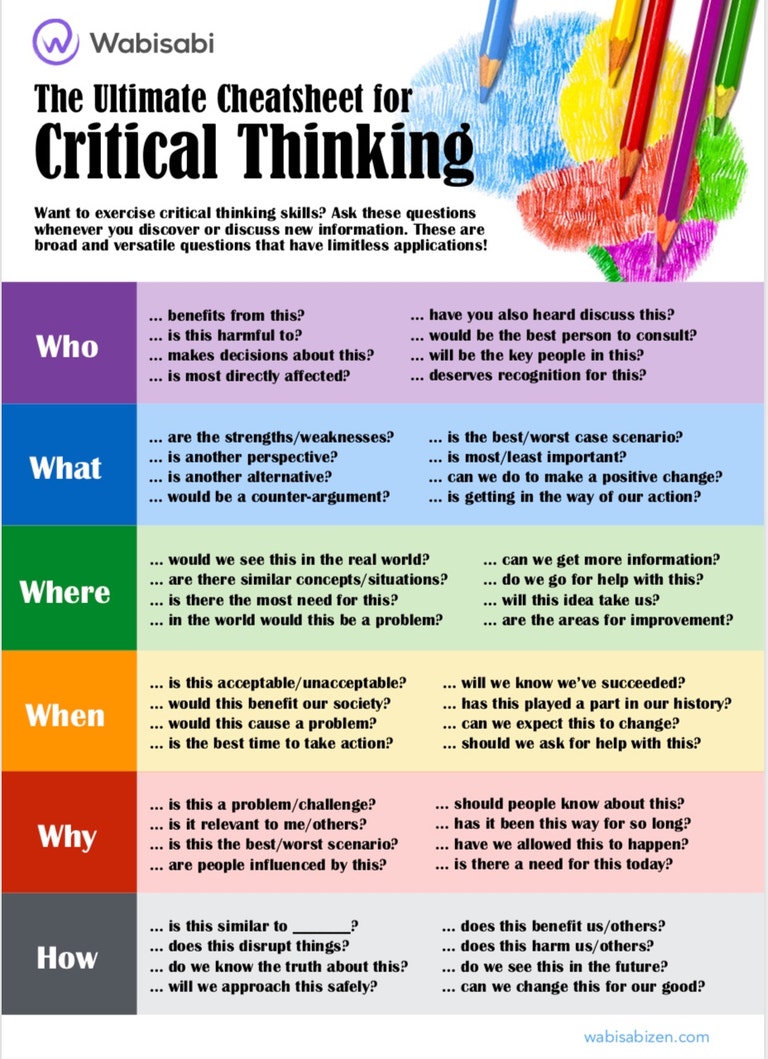
Improve Your Critical Thinking With This Cheatsheet
by Nicole DiekerThe next time you need to think critically about something—whether you’re considering a new idea, weighing the pros and cons of a potential decision, or evaluating whether you can trust a particular news source—it’s worth asking yourself a few simple questions.
- Who benefits from this?
- Who is harmed by this?
- What would be a counter-argument?
- Where would this idea take us?
Recomendo recently shared a spreadsheet developed by Wabisabi Learning (an online learning platform) that’s designed to help you ask the kind of questions that inspire critical thinking. A lot of these questions are designed to get you to evaluate both sides of a potential idea; if you believe that a particular decision will benefit you, your family or society in certain ways, you also need to ask yourself how that decision might cause problems down the line—and be honest about the answer.
Here’s the cheatsheet, if you’re curious about all the questions you might want to consider:

These critical thinking skills are especially important right now, as states begin to open up and people begin to ask themselves whether it’s safe to go back to work, visit a restaurant or invite other households to form a quaran-team. For many of us, deciding what to do during this phase of the COVID-19 pandemic will come down to some very careful thinking about the potential risks and benefits—so it’s important to approach this analysis as critically as possible, while avoiding cognitive biases, wishful thinking and the kind of gut-level emotional responses that can lead you to make decisions before your brain has processed all of the available information.
If you were trying to decide whether or not to go to a restaurant, for example, you might want to ask the following questions:
- How will we approach this safely?
- Who will benefit from this decision?
- Who might be harmed by this decision?
- Are there alternatives that give us similar benefits with less risk?
- Where can we get more information that will help us make this decision?
As you put these critical thinking questions into practice, you might notice the process becoming easier and more intuitive. You won’t always need to consult a cheatsheet to remember to consider both sides of the argument or look for alternatives that offer the same benefits, and your critical thinking skills might start to become second nature.
At that point, you might find yourself making better choices all around, whether you’re asking yourself how to handle an interpersonal conflict or what to eat for lunch. Wisdom, after all, is often as simple as thinking before you act—and learning how to think critically is the first step.